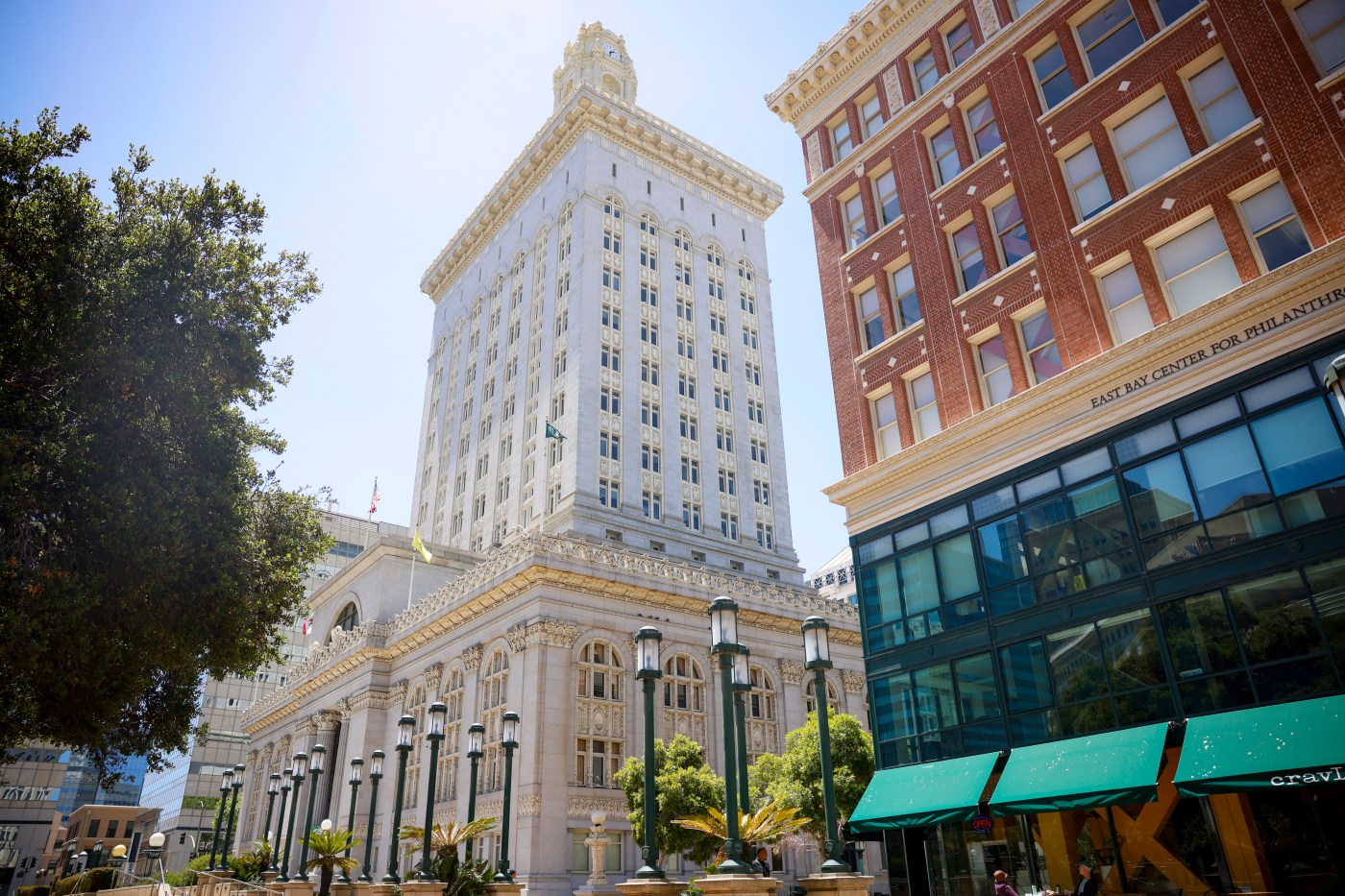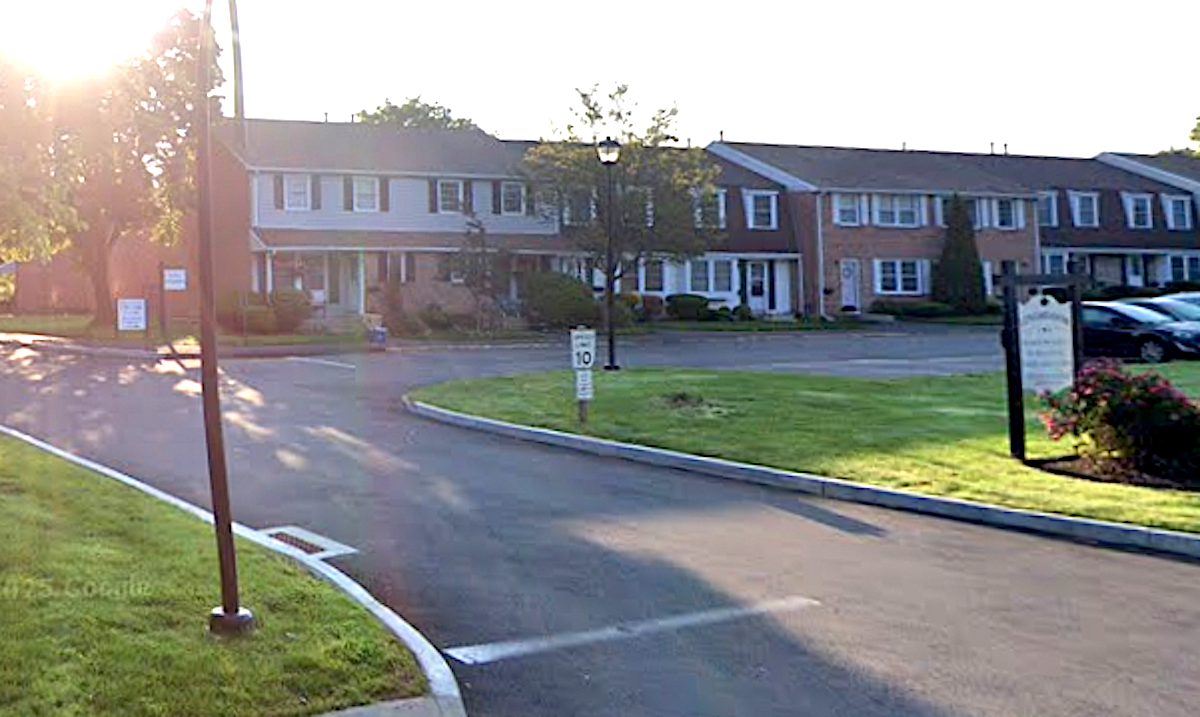OAKLAND — The next five years are projected to be as tough as the past half-decade was in Oakland, where ripple effects of the COVID-19 pandemic, the economics of the Trump administration and rising pension costs indicate rough financial seas ahead, a new city report has found.
Oakland is facing post-pandemic struggles similar to those of other California cities, but the money spent on worker salaries — including overtime pay for police officers and firefighters — has ballooned the city’s shortfalls to levels not seen since the Great Recession.
The trend isn’t likely to change for the rest of the 2020s, according to the report, a five-year financial forecast typically released ahead of the city’s biannual budget cycle.
It predicts annual deficits through 2030 ranging from $115 million to $126 million in the general purpose fund, which pays for worker salaries and other operational costs, as well as pensions owed to former workers.
“Regardless of this forecast or what actually happens in the economy, the city remains underfunded with regard to meeting these obligations for current and past city employees to the tune of more than $1.2 billion,” the city report prepared by Oakland’s budget officials said.
“The city will need to consider additional, more aggressive fiscal policies to increase funding to responsible levels to ensure the city will be able to meet its obligations,” the report adds.
Kevin Jenkins, a City Council member who led Oakland as its interim mayor before the swearing-in last week of Mayor Barbara Lee, proposed a new budget earlier this month that would attempt to close a $265 million shortfall over the next two years.
Newly elected Oakland Mayor Barbara Lee speaks after being sworn at City Hall in Oakland, Calif., on Tuesday, May 19, 2025. (Dai Sugano/Bay Area News Group)
The new forecast places the expected two-year shortfall at a lower number — $245 million — and overall the shortfalls in these two-year budget cycles rely on assumed costs and revenues that often do not end up aligning with reality.
Other costs facing the city are more fixed. Retirement costs, including for medical insurance and pension obligations, are expected to “place increasing pressure” on the general purpose fund, the forecast states.
The city has set up financial trusts to help pay down its pension obligations, a solution that the new report credits for slowing the growth of money owed to past workers long after their retirements.
But on the revenue side, the economy has not returned to pre-pandemic levels.
Fewer flights taken at the Oakland airport have contributed to an enduring dip in hotel occupancy; real-estate sales have not bounced back from a decline driven by higher interest rates and the report states plainly that the city’s retail economy is not up to par.
“Taxable sales are the lowest among California’s largest cities, lacking major retailers like Costco, for example,” the forecast points out.
Meanwhile, tariffs imposed by the Trump administration are expected to raise the costs of both goods bought by residents and materials needed for construction of new buildings, such as steel, aluminum and energy products.
City leaders have strived to cut spending, laying off dozens of public employees earlier this year and projecting further staff reductions in the new two-year budget, which spares cuts to police officers.
Members of the Oakland Police Department take part in a ceremony to honor the 55 Oakland police officers who died in the line of duty on Thursday, May 8, 2025, in Oakland, Calif. About 200 people, including relatives of the deceased officers, current and retired Oakland police officers and city and county officials took part in the annual ceremony. The memorial wall inside department headquarters has the names of the 55 Oakland police officers killed in the line of duty between 1867 and 2024. (Aric Crabb/Bay Area News Group)
Oakland is paying for around 675 sworn officers, but police Chief Floyd Mitchell said Wednesday that only 535 officers are active on the force — with the rest out on either medical or administrative leave.
Last week, the Oakland police officers’ union said it had declined a request by city leaders to defer a 3% wage increase guaranteed in their contracts.
Huy Nguyen, the union’s president, accused the city in a statement of failing to “produce a concrete financial plan or a collaborative path forward.” At large, however, city leaders have looked everywhere besides the Oakland Police Department to reduce spending.
The city has cut programs for free parking, slashed funding for nonprofits and no longer offers grants for various public events, such as the popular Art and Soul festival. Starting in the summer, two Oakland fire stations will be closed on a rotating basis.
“We won’t be able to permit all the fairs and festivals that make Oakland, ‘Oakland,’” Ashleigh Kanat, the city’s director of Economic and Workforce Development, said Wednesday at a city budget meeting.
Still, officials noted Wednesday the city continues to have a number of positive factors working in its favor — ripe ground for development, advanced transportation options and a downtown business scene looking to rebound.
“Oakland is in a position to thrive,” Kanat said. “We are so rich in assets.”
Shomik Mukherjee is a reporter covering Oakland. Call or text him at 510-905-5495 or email him at [email protected].





